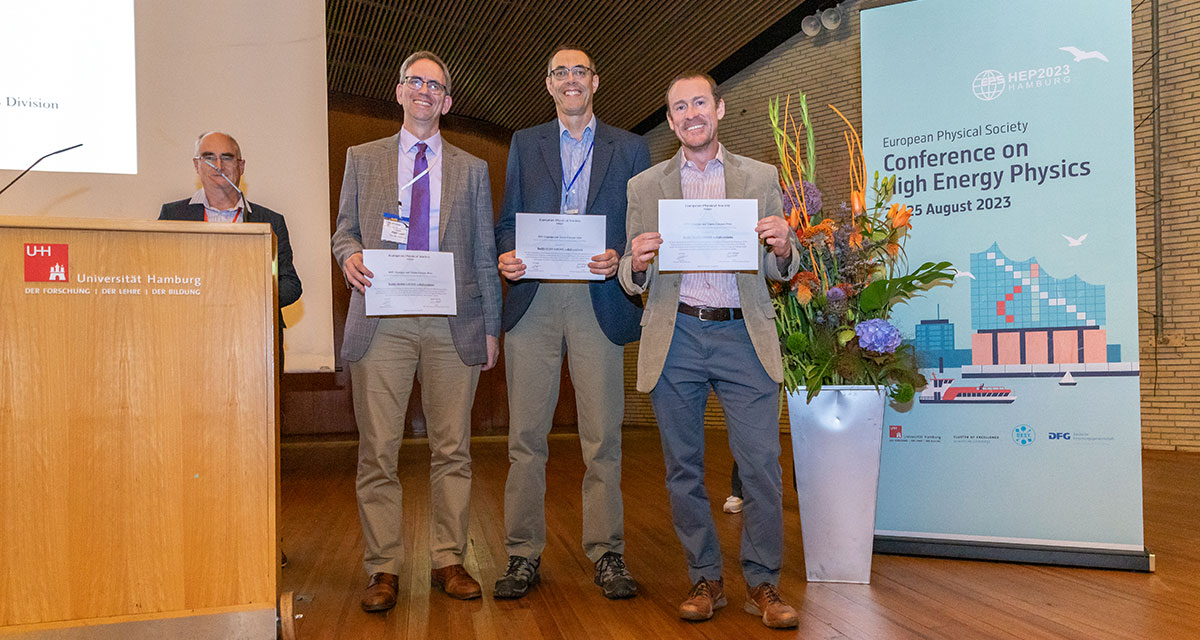
This page originally appeared on @THEU
The High Energy and Particle Physics Division of the European Physical Society (EPS) held its award ceremony at their annual conference on August 21, 2023, where they honored the field’s most influential research projects. The SDSS/BOSS/eBOSS collaboration won the Giuseppe and Vanna Cocconi Prize for an outstanding contribution to particle astrophysics and cosmology in the last fifteen years. The University of Utah was a key contributor to the BOSS and eBOSS collaborations.
“I joined the BOSS experiment when moving to the University of Utah. At the time, it felt like a gamble moving into a new cosmology experiment when starting as an assistant professor. It was clearly the right gamble to make as the experience has defined my career and has set me up to help plan large cosmology experiments over the next decade and beyond,” said Kyle Dawson, principal investigator of eBOSS and professor in physics and astronomy at the U.
The SDSS/BOSS/eBOSS projects are international collaborations involving hundreds of scientists that have fundamentally changed our understanding of the universe. The projects used the Sloan Telescope in New Mexico to collect the largest spectroscopic sample of galaxies in the world. With this sample, the SDSS/BOSS/eBOSS collaborations developed new research methods that pushed observations of cosmic evolution back to a time when the universe was only one-fifth of its current age. These measurements strengthen the dark energy within the standard cosmological model as the explanation for cosmic acceleration. At the same time, these measurements provide evidence that additional physics may be required to explain the local expansion rate of the universe, known as the Hubble constant.
The success of these experiments has inspired the next generation of cosmology experiment with participation by Utah professors Dawson and Zheng. Professor Dawson now serves as co-spokesperson for the Dark Energy Spectroscopic Instrument (DESI) and is responsible for fostering scientific productivity across the collaboration. DESI is already in its third year of observation and will soon produce a sample that is ten times larger than that of the SDSS/BOSS/eBOSS experiments.
For Dawson, accepting the award on the projects’ behalf was significant.
“Over the lifetime of BOSS and eBOSS, I played the roles of survey scientist, instrument scientist, and principal investigator. These three roles allowed me to lead the efforts in the daily observations, instrument operations, and eventually coordinating the final scientific analysis and results,” Dawson said. “Several hundred graduate students, postdoctoral researchers, and senior scientists worked for more than a decade to make these results possible. It was wonderful to be a part of this collaboration and to receive this recognition.”
LISA POTTER – RESEARCH COMMUNICATIONS SPECIALIST, UNIVERSITY OF UTAH COMMUNICATIONS
